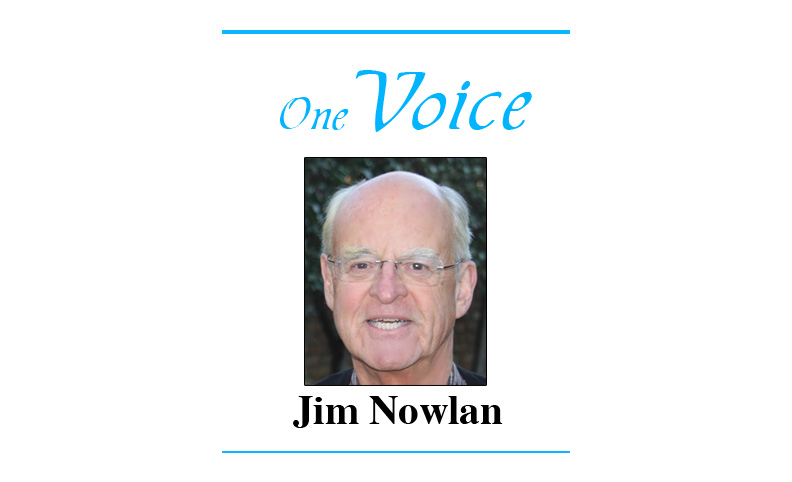
The coffee klatch at Julie’s Café Market asks: What’s going to happen in American politics over the next few years, now that Donald Trump has declared he plans to be the leader of the Republican Party? Here is my take.
In sum, the Republican Party will survive, if at all, as a distinct minority party, so long as Trump continues being Trump. That is, Trump refracts every action, absolutely every one, through the prism of how it affects the world’s view of him, not of how actions affect a political party’s fortunes. It’s not a way to run a party.
Trump has a base of about 30%-35% of the electorate, largely outside urban areas. His backers are passionately committed to him as an individual, not to him as a party leader. Unfortunately for him, a similar slice of the Party, or maybe a bit larger, is opposed to him with comparable intensity. And many of the rest, who are neither for or against Trump, find him and his actions distasteful.
For the coming election cycle, I expect Trumpers to win both primaries and general election races in rural and small-town America. In the vote-rich suburbs, however, Trumpers and anti-Trump candidates will square off in many GOP primaries.
Should a Trumper win a suburban primary, he or she will often lose the general election, because many women there find The Donald objectionable. Should the anti-Trumper win the primary, the Trumpers often will not vote for him or her in the general, ceding the election to the Dems.
It will thus result in a reduction in legislative seats for the GOP at both the State and national levels.
Looking ahead to 2024, Trump likely will win the GOP nod for the presidency, yet once again his base will be insufficient to win the Oval Office.
On the Democratic Party side, Joe Biden will be 82 year old in November 2024. I think he will step aside for vice president Kamela Harris, who votes liberal, yet comes across as a suburban professional.
All the above assumes for my analysis that the Democrats will not shoot themselves in their collective Big Toe along the way. Take inflation, for example.
An enduring weakness of democracies always has been the tendency of politicians to promise to do for voters (spend money) and not do to them (tax voters to pay for the spending). This results in budget deficits.
To wit: The present spending riot by Dems in D.C. comes on top of the GOP’s $2 Trillion tax cut in 2017, which itself was painted over wholly with red ink. I was taught in college that if the money supply goes up sharply without a comparable increase in the supply of goods, there will be inflation, possibly of the runaway sort. Think Argentina, the Weimar Republic in post-WWI Germany, and in undisciplined democracies around the world. Many economists here say, tsk-tsk, not to worry in the U.S.; some others say: Worry.
After a Trump loss in 2024, the GOP would be shattered. Without Trump and his base, the Grand Old Party would represent 20-25 percent of the electorate.
In the interim between now and post-election 2024, anti-Trump Republicans will be rallied by the likes of U.S. representative Adam Kinzinger (R-Illinois) and his Country First political committee. Adam has a positive, uplifting, but unspecific message. Can the likes of the 42-year-old Kinzinger arouse passion? I am hopeful.
Kinzinger appears to have burned his bridges with the GOP in Illinois, with some dismissive remarks he made about GOP leaders. So, will he transform fledgling Country First into a new party? I have written elsewhere that there is space for a new party, but the challenge of getting one up and running is daunting, and would take two or more election cycles.
The Nation may be in for a decade or more of one-party Democratic Party rule, much like the Democratic-Republicans’ lopsided majorities in Congress from 1800 to 1824.
What our Nation needs, in my humble opinion, is a secular Great Awakening. In the first half of the 18th Century, emotional preachers brought members of society to their feet and on to their knees across our new Nation.
The disconnect is that the 18th Century phenomenon didn’t require pain and sacrifice, indeed revivalists offered a pathway to salvation through faith alone. In contrast, a 21st Century “Awakening” will require broad pain and sacrifice to straighten out our country, its finances, and competitiveness. A tall order for Americans, used to the good life, where political parties find spending more successful than challenging us.
For many years, Jim Nowlan was a senior fellow and political science professor at the University of Illinois in Urbana-Champaign. He has worked for three unindicted governors and published a weekly newspaper in central Illinois.

